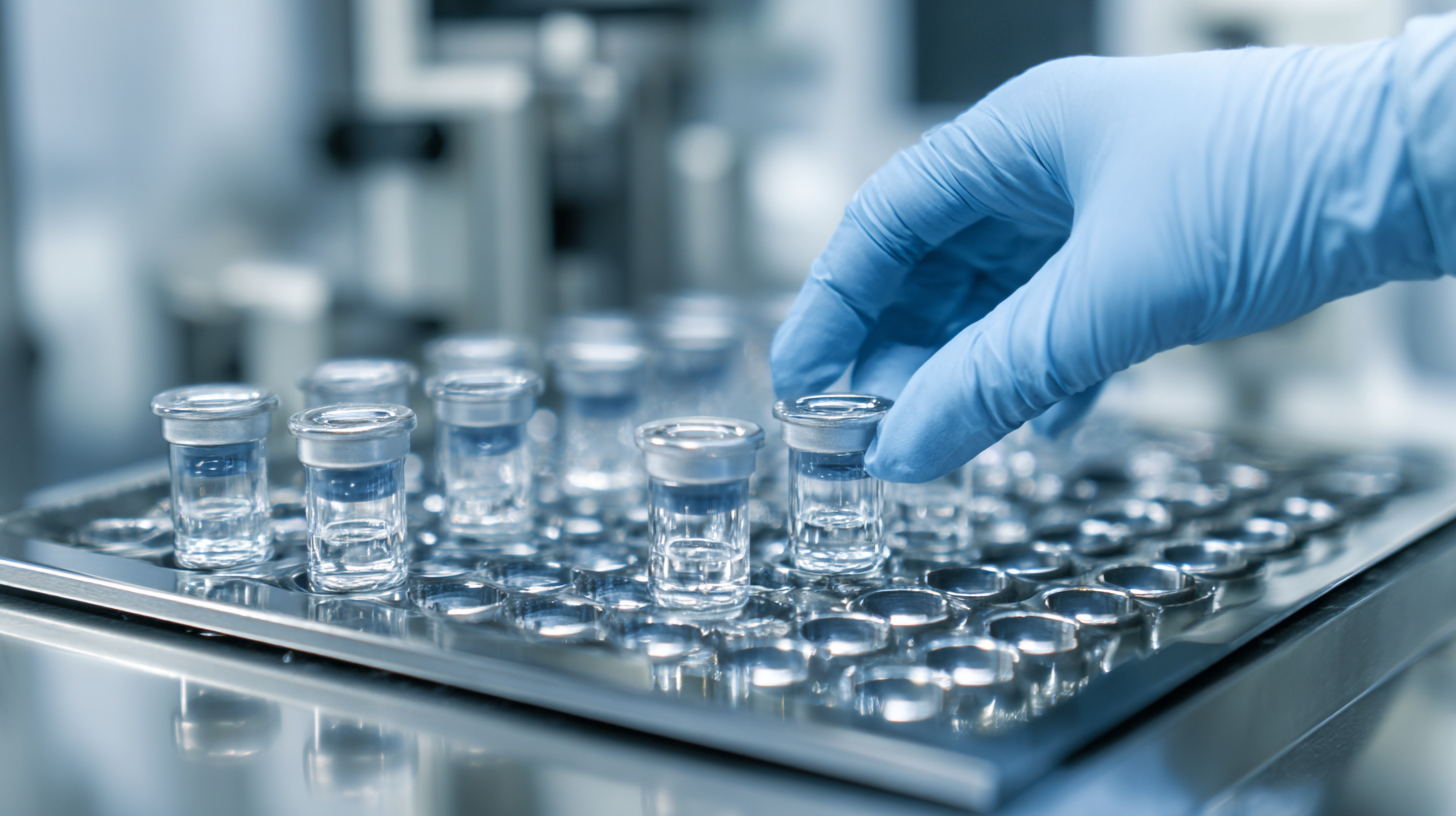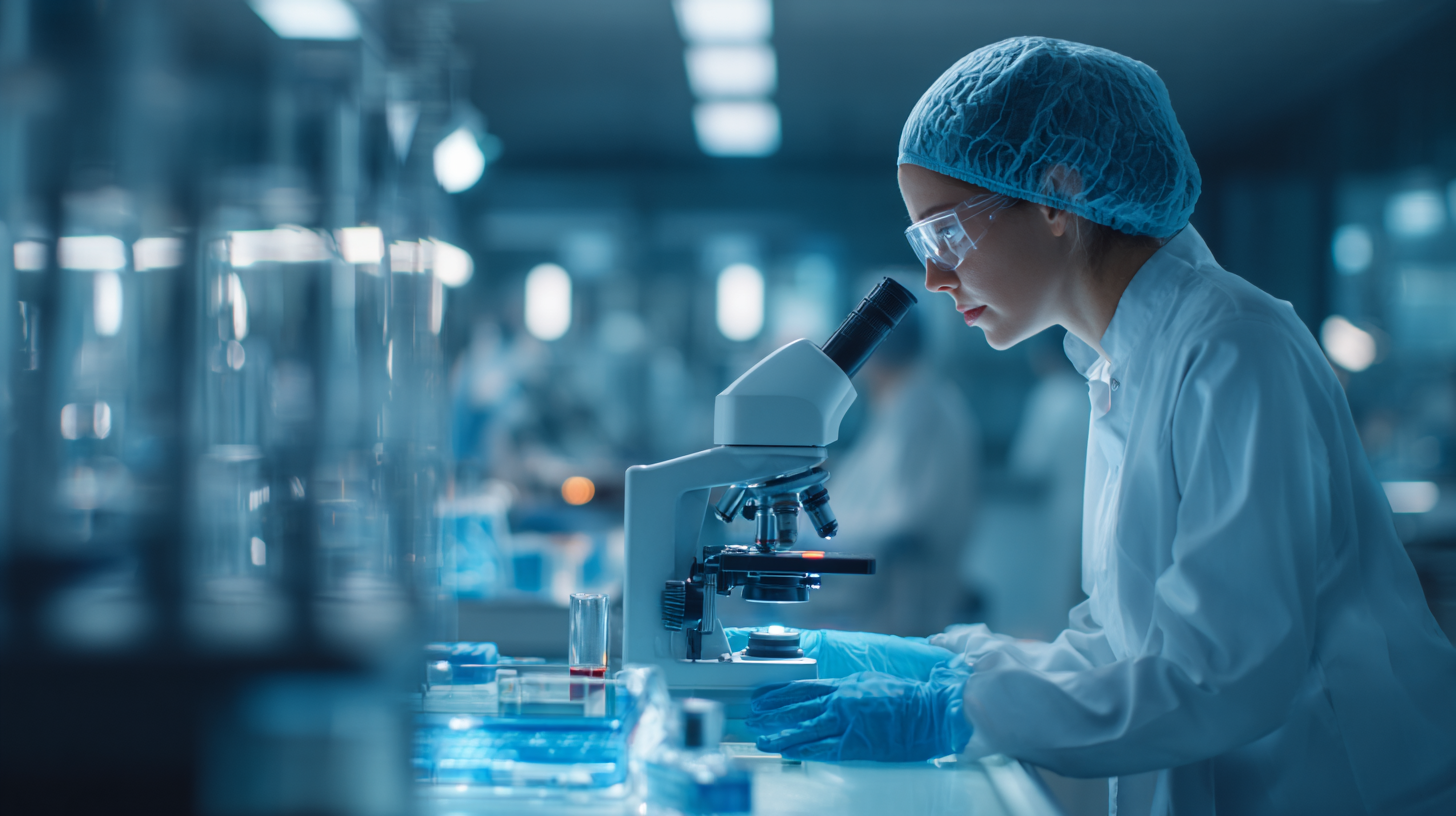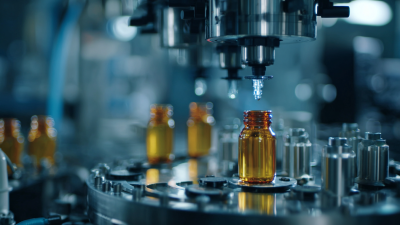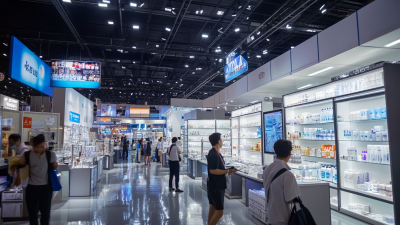The role of Medicine Manufacturing in the healthcare industry cannot be overstated, as it serves as the backbone for drug development and distribution, impacting patient care worldwide. According to the Pharmaceutical Research and Manufacturers of America (PhRMA), the U.S. pharmaceutical industry alone invested over $83 billion in research and development in 2021, a clear indicator of the industry's commitment to innovation and high-quality medicine production.

Additionally, a report by the IQVIA Institute highlights that the global pharmaceutical market is projected to reach $1.5 trillion by 2023, driven by advancements in biopharmaceuticals and personalized medicine. As the demand for effective therapies continues to rise, understanding the complexities and significance of Medicine Manufacturing becomes essential for optimizing healthcare outcomes and ensuring the availability of safe and effective medications for patients.
This blog will delve into the pivotal aspects of this sector, offering insights and practical tips for navigating its challenges and maximizing its potential.
The role of medicine manufacturing in ensuring healthcare quality and safety cannot be overstated. According to the World Health Organization (WHO), approximately 10% of medicines in low- and middle-income countries are substandard or falsified, posing significant risks to patient safety and treatment efficacy. This alarming statistic highlights the critical need for stringent manufacturing processes and regulatory oversight in the pharmaceutical industry to protect public health.
Good Manufacturing Practices (GMP) are essential in the production of pharmaceuticals to guarantee that medications meet quality standards. Reports indicate that companies adhering to GMP standards can significantly reduce the likelihood of product recalls and patient harm. For instance, a study by the U.S. Food and Drug Administration (FDA) found that facilities with robust quality management systems experienced up to 50% fewer compliance issues. This underscores the importance of investing in quality control measures throughout the manufacturing process.
Tips: Always choose medications from reputable manufacturers and check for certifications that verify compliance with quality standards. Additionally, healthcare providers should stay informed about emerging technologies in medicine manufacturing that can enhance safety, such as the use of artificial intelligence for quality assurance and real-time monitoring systems that detect variations in production conditions.

The landscape of medicine manufacturing is evolving rapidly, influenced by both technological innovations and shifting market demands. Current statistics highlight that the global pharmaceutical manufacturing market is projected to reach $1.57 trillion by 2025, growing at a CAGR of 7.4% from 2020. This growth is largely fueled by advancements in biopharmaceutical production, with single-use technologies and continuous manufacturing methods gaining prominence. Indeed, a recent report from Deloitte underscores that nearly 60% of surveyed pharmaceutical executives consider adopting continuous manufacturing as a key priority to enhance production efficiency and scalability.

Moreover, the integration of artificial intelligence (AI) in the manufacturing process is revolutionizing the industry, optimizing everything from drug formulation to supply chain management. According to a report by McKinsey, AI applications could potentially save the pharmaceutical industry between $100 billion and $300 billion annually. This shift not only improves operational efficiency but also accelerates the time-to-market for new therapies, which is crucial in an industry where innovation directly impacts patient care. As healthcare continues to demand higher quality and faster production, the significance of these trends in medicine manufacturing cannot be overstated.
Advancements in technology have become a cornerstone in the efficiency of medicine manufacturing, revolutionizing how pharmaceuticals are produced and delivered. Automation, artificial intelligence, and data analytics play pivotal roles in streamlining operations, reducing production time, and minimizing human error. These technologies enable manufacturers to optimize supply chains, enhance quality control, and respond to market demands with remarkable agility. For instance, implementing AI-driven predictive analytics allows companies to foresee potential disruptions in production, ensuring continuous operations and timely delivery of essential medicines.
Moreover, the integration of advanced manufacturing techniques, such as continuous manufacturing and 3D printing, has transformed traditional production methods. Continuous manufacturing allows for a more streamlined and efficient process that reduces waste and energy consumption, thus lowering costs. 3D printing introduces the possibility of personalized medicine, where patients can receive tailored dosages and formulations, further improving treatment outcomes. As these technologies evolve, they not only enhance operational efficiency but also contribute to the overall goal of delivering high-quality medicines to patients swiftly and effectively.
The pharmaceutical manufacturing sector plays a pivotal role in enhancing global healthcare systems, significantly contributing to economic stability and growth. With an ever-increasing demand for innovative medications, this industry not only provides lifesaving treatments but also generates thousands of jobs worldwide. The manufacturing process itself is a complex amalgamation of research, development, and distribution that fuels economic activity across various sectors, from raw materials suppliers to logistics and healthcare providers.
Moreover, pharmaceutical manufacturing supports healthcare accessibility through the production of affordable generics and essential medicines. This accessibility fosters healthier populations, which in turn enhances workforce productivity and economic output. Countries investing in robust pharmaceutical manufacturing capabilities are better positioned to respond to public health crises, ensure the availability of critical treatments, and reduce dependency on imported drugs, ultimately strengthening their healthcare infrastructure and economic resilience.
The medicine manufacturing industry plays a crucial role in the healthcare sector, but it faces several challenges that can impede its efficiency and effectiveness. One significant issue is the increasing regulatory pressure, which demands strict adherence to quality standards while juggling production costs. Manufacturers must ensure compliance with regulations, which can lead to longer approval times for new drugs, consequently delaying their availability to patients.
Another challenge is the rapid advancement of technology. While innovations in manufacturing processes can enhance efficiency, they also require constant investment and skilled personnel to operate the new systems. Companies that fail to adapt may find themselves at a competitive disadvantage. Moreover, supply chain disruptions, exacerbated by global crises like pandemics, have highlighted the vulnerabilities in sourcing raw materials. To tackle these challenges, the industry can invest in robust supply chain management solutions and opt for automation to reduce costs and errors in production, ensuring that quality is maintained while responding swiftly to market demands.
| Challenge | Description | Proposed Solution | Impact on Industry |
|---|---|---|---|
| Regulatory Compliance | Ensuring adherence to global and local regulations can be complex. | Invest in compliance management software and regular training for staff. | Improves reliability and trust in products, enhancing market position. |
| Supply Chain Disruptions | Transportation and supplier issues can delay production. | Diversify suppliers and implement contingency planning. | Enhances resilience against disruptions, ensuring steady supply. |
| Quality Control | Maintaining consistent quality across batches can be challenging. | Implement advanced analytics and regular audits of manufacturing processes. | Reduces waste and recalls, promoting customer confidence. |
| Technological Changes | Keeping up with rapid advancements in manufacturing technology. | Invest in continuous training and upgrade equipment regularly. | Enhances efficiency and reduces operational costs long-term. |
| Sustainability | Growing demand for environmentally-friendly practices in manufacturing. | Adopt green manufacturing processes and waste reduction strategies. | Enhances brand reputation and meets consumer expectations. |





